It’s been too long since I’ve been any further north than Waipu; and with the chance to visit The Landing as well, I set myself up with a couple of days checking out the wineries around the Bay of Islands. Asking around, one name came up again and again – some in the know going so far as to say “without Rod, there wouldn’t have been a wine industry in Northland today”. Top of the list then was a visit to Marsden Estate on the outskirts of Kerikeri, to catch up with Rod MacIvor…
WineFolio: Thanks for seeing me – it’s good to get out of Auckland. And I’ve been doing a lot of work just recently – both tourism and wine. It can be hard work and having to get along with everyone – which can be tricky sometimes as I always want to be fair and honest…for example, if I don’t like your Chambourcin – I’ll say ’I’m not keen on that’ – but what I will do is want to find something that I do like, and want to praise.
Rod MacIvor: Well that’s it isn’t it. You’ve got to be careful. Particularly with wine – you’ve got to be honest with it. And that’s why I talk about wines like ‘White Diamond’ because winemakers won’t go near it, and are very sniffy. But it’s made out of grapes. It’s wine. And some people like it.
And it’s like Chambo – I’ve got some winemakers who won’t even taste it. And, look, that’s fine. There’s certain styles of wine that I like and I drink. But I don’t put the wines down that I don’t drink because I don’t like them. It’s just a style I prefer. I’m not a vegetarian, so if I was going out I’d have fish or meat or chicken. If someone’s vegan or vegetarian that’s fantastic.
WF: Do you have to keep an eye on the market though, and make what sells?
RM: Yeah, you do. There’s definitely styles that you can’t make enough of – your rosé and Pinot Gris, but most winemakers don’t get overly excited about those wines.
If you look at the Gold Medals at the NZIWS, I’d say 99% of the Golds for rosé are for ones made from Pinot Noir. It makes a nice rosé but other varieties make nice rosé too. From what I’ve seen of rosés – the most important thing for the public is the colour. They want a light rosé. As long as it doesn’t stick out, within that profile of what a rosé should taste like; and normally with a few grams of residual sugar, and it’s the right colour…people like it.
WF: Kingsley’s Tastings are back on now and he just poured us a rosé that won Double Gold – and it’s exactly what you just described. Right colour, right taste, bottle looks good, and it’s got a white cap on top.
RM: Well the good thing with the judges is that they’re tasting what’s in the glass, not looking at the bottle. But you see people out here at lunchtime, table with nice food on it, and the rosé sits there and it lights the table up.
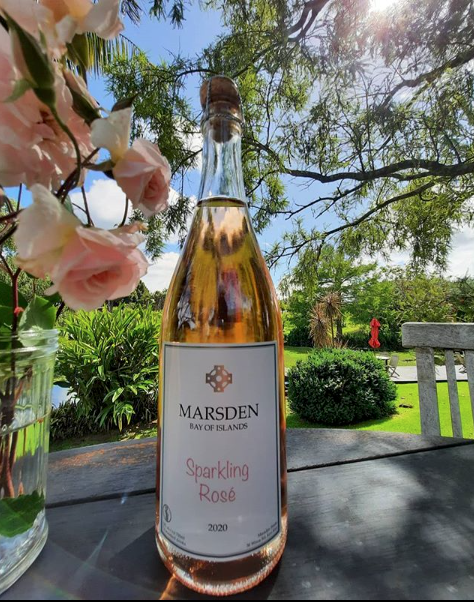
WF: And it lights the food up as well, it’s a great food wine.
RM: And it used to be seasonal, only in Summer; but now our sales don’t slow down in Winter.
What else are we up to – Pietro, our Italian winemaker who lives in New Zealand – he’s out the front making a garden bed, and I’ve just made these tables! In two years time this winery will be twice the size…. We’ve just done the roof for another cool room motor which is going in this year, and I’ve just ordered another $100,000 worth of tanks! I have to have them for next harvest – we’re hundreds of litres up on last year. Things are going nuts – got all these new tables, but I can’t put them out – we can’t get the staff. The restaurant is up over 30% which gives us confidence.
WF: What do you think about Northland’s profile?
RM: It’s terrible. It’s a shocker. Getting wine in Northland into one sentence is bloody tough. What’s happened is – people like Julian Roberts that whacked the Kauri Cliffs in, or Peter Cooper who put $10 million into a winery there.. and with Eagle’s Nest and what the Duke are doing… it’s bringing a new level through. People coming from overseas don’t have a perception about Northland. We get a completely different idea.
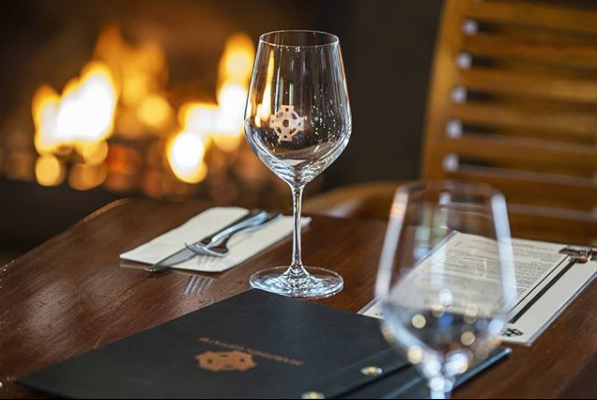
Also, a lot of Aucklanders have had a historic connection to Northland with baches and stuff like that. That’s our market in the summer, and all those guys come up here with cars. It’s not like Waiheke where you’re not going to carry a case of wine back with you.
From here they all take it home. With the wineries up here, there’s now a lot of Chambourcin which is a unique thing. Most of the people up here don’t have a problem selling the wine. The problem is having enough wine!
We’ve probably got 30 different clients we make wine for. It’s how you sell it – that’s the hard part, whatever you do now. Trying to sell a Northland wine in Auckland. Say you’ve got a $45 Marsden Black Rocks, and a Villa Maria Barrel Fermented Gisborne Chardonnay, that you know. You go for the one you know. You’re not going to take a punt on a wine you don’t know from an area you don’t know anything about. So it’s really hard for some of the guys to get outside Northland. But at the moment the market is so big in Northland that there’s not a problem selling it.
We are joined by Pietro, the garden bed manufacturer, and winemaker
I’m introduced to Pietro as a ‘writer, specialising in tourism and wine’, and a lively discussion ensues around who is a go-to writer now for people wanting to find out about wine, including the decline of printed media (much of the talk we won’t publish here).
RM: What people want is the stories – not whether it’s capsicum and cut grass, and they want something they can understand. Bob’s been so good because he tells you the story, but Bob’s not as prolific as he was. There’s probably a hundred programmes on TV about food – don’t get me started.. but there’s nothing about wine. What publications do you go to – there’s Michael Coopers’ Wine Annual which is stunning, of course; but half the competitions are gone as well! Even the Bragato which was fantastic for the small guys up here. There were probably five good competitions and now you’ve got the New Zealand International and the Royal Easter Show.
WF: Or the New World one, but that’s at a certain pricepoint, and if you won an award you’d have to have enough to supply all those supermarkets?
RM: We got an award in that, and it was quite a long time ago, and we only had enough to do the minimal amount. So we went round all the suppliers and got all the stuff back, so we could fill it. And then about four months later the stuff starting coming back because they weren’t selling it. So we’d have a shop at Palmerston North that we had to send five cases to, and then five cases would come back. A lot of the shows are about promoting their sales and not the wine industry. I’m onto the Winegrowers Association to try and get the Bragato back. Just have it in Auckland. $80 a bottle to put your bottle in, so they’re not going to lose money. You can get good judges – Auckland guys so you don’t have to fly them in and put them up. And just go for single vineyards, because for us, a small guy just producing in Northland – it’s really important for us to lift our profile. One of the ways you can do that is by getting some kind of recognition in competitions.
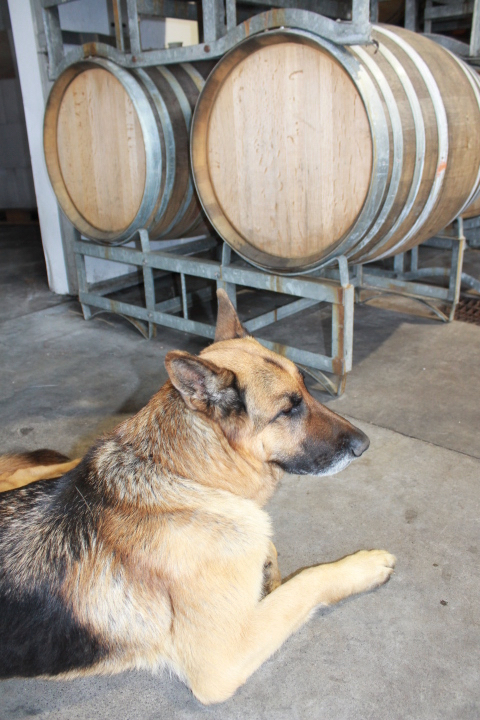
It’s a bit like New Zealand Savvy – it only really started to take off when It started to win competitions in England. People said ‘shit this is good, it’s won that’. If it hadn’t it probably would have taken a lot longer to get the recognition.
And with a visit, it’s the experience as well. Monty up at Kaitaia, he used to have that Ninety Mile Red, and the guys would go up surfing and get half a case because it was where they’d been surfing; so they’re taking part of that holiday back with them. It’s the story, not so much the product – I mean it’s got to stack up – but it’s the package, the whole thing.
New Zealand Winegrowers recognises just how important wine tourism is. They’ve also said that since lockdown, all wine-producing countries are having an increase in domestic wine sales – so people are drinking more local wine. I don’t know whether it’s psychological or what but we’re drinking more kiwi wine, and Aussies are drinking more Aussie wine. But look at exports for New Zealand – they’re up 20%!
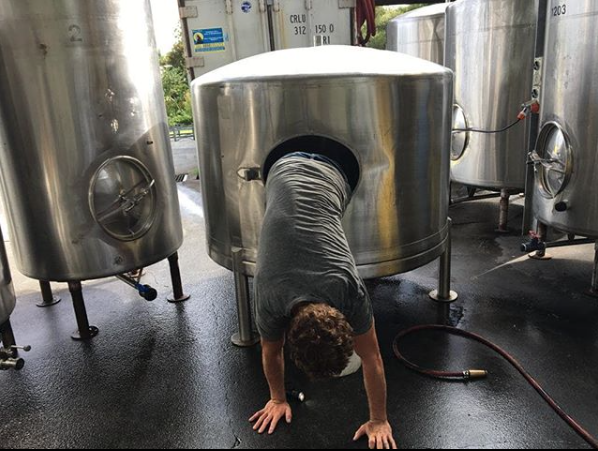
So we’ve got an amazing opportunity, in the next however-long, to showcase Northland and improve that domestic market. It will definitely be this summer. We had our Northland Winegrowers AGM last week and had a really good talk about how we can maximise this opportunity. It’s a big geographic area and as far as tourism goes most of it ends about here because it’s that 3 hour distance from Auckland.
Also, Kerikeri has tripled in size in the last ten years and a lot of those people are retired, so haven’t really been affected too much by what’s happened – at least financially. Covid made people realise what’s important – it’s your lifestyle with friends and family. It’s been a wake up call.
WF: I don’t wine to fall into that nice to have, but not important, basket though. If you look at who’s important to, say a Frenchman – so who’s an important French person? And they might say a poet, or a singer, or a chef or a winemaker! You ask a New Zealander and it’s some bloke who climbed a mountain or a rugby player – those are the most important people. I think life is more than that. I think the pinnacle of life is a poem, a song, a meal or a glass of wine.
<< At this point Pietro speaks, and says “intangibles” >> and Rod and I fall about! Of course it takes someone for who English is not their native language to tell us exactly what we mean! Classic.
RM: But you look at the lockdown and how important wine became – it was the one thing at the end of the day you could treat yourself to. It has become part of our everyday life.
WF: How has beer affected wine, because beer is having a renaissance?
RM: I love a beer.
WF: Isn’t there a danger now that we’ve got craft beer though – you always want the new thing. You don’t go into a bar that has craft beer and say “I’ll have my usual” – you always want there to be something new to try? You can have your favourite, but want something new?
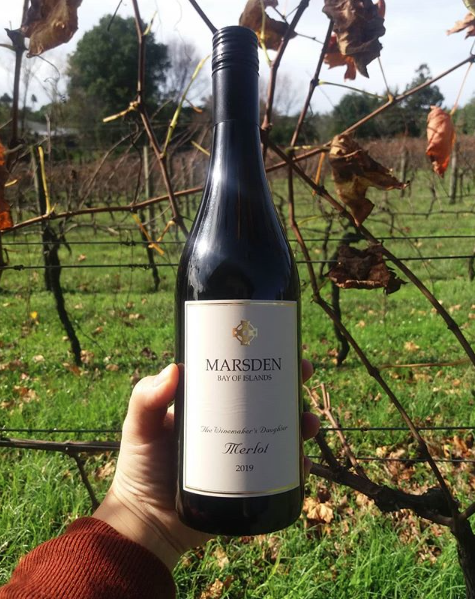
I don’t wine to become like that. Someone walks in here and says ‘oh well I’ve had your Chardonnay, what else have you got? Show me some tricks..’ Do you find that?
RM: No, it’s the opposite. People want consistency. Even though you tell people you’re not making a product that’s going to taste the same every year. People want the Black Rocks to taste like the Black Rocks, every year, the same. So you tend to, with those wines, make them within a certain profile. Same with your Pinot Gris.
And then we call our Chardonnay ‘Black Rocks’, so people don’t come and ask for a Chardonnay – they ask for a ‘Black Rocks’. There’s lots of wines that have names, so the wine takes on a personality of itself. You have a relationship with that wine. And it’s not necessarily what that variety is – it’s that bottle. We make a lot of wines of other varietals for other people. And people want to try them, but they’re not necessarily going to be winners. So you’ve got Arneis and Vermentino and Tannats and whatever else. People will experiment but always go back to the styles that they like.
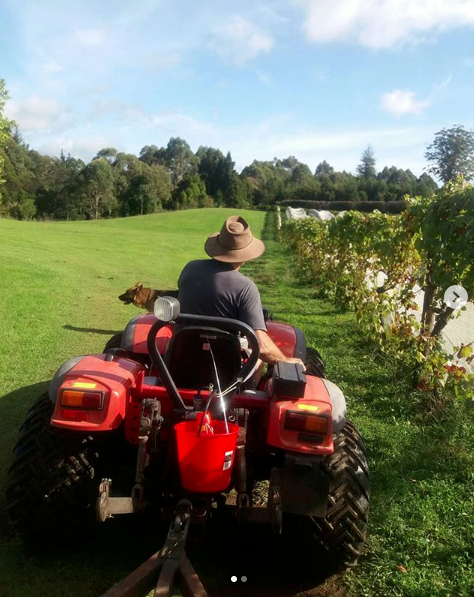
WF: These 30 other clients – do you guide them as to what you think you should be doing with it?
RM: Most of them dump the grapes off and they want them back in the bottle. <laughs> Some of them we’ll give them the wine before bottling and say “do you want some residual sugar?’ A lot of people have a sweeter palate so they want a bit of residual sugar in their wines – especially with rosés, Pinot Gris’.
WF: What do you think about something like a European person tries a New Zealand wine and they find it sweet, because it’s fruity. And yet it’s dry – it has no sugar in it. The fruit gives the perception that it seems sweet?
RM: That’s the national palate though – we make fruity wines, trying to bring as much of the fruit expression out as we can. In France for example they’re probably trying to make something more approachable to food. We did a tasting of all the barrel wines from around Northland the other day. So we had one wine which was full of Brett. And one young French winemaker, a lady from Kerikeri, and she was halfway round the table, and – I feel guilty about it – she got to the wine and she said ‘this is lovely, like the forest floor, taste the terroir’ … and I didn’t mean to embarrass her when I said ‘that’s so typical’.
WF: To a good wine that already has good structure – those little things, it’s that extra 5% that people talk about. Something else in there that piques your interest even further. As long as it’s not the wine, those tiny details – the malo, the oak, the less influence, the reductiveness – it adds some intruige.
RM: We had a Chambo that was full of Brett and a french guy from Christchurch, who knew his wines, said ‘keep sending me that wine’. Because they have it in their wines and that’s the style they are used to. It’s not terroir. We in New Zealand consider it a fault. They consider it a natural part of the product. And then we had one wine here that a little bit of Brett, and that, to me, was a plus to the wine.

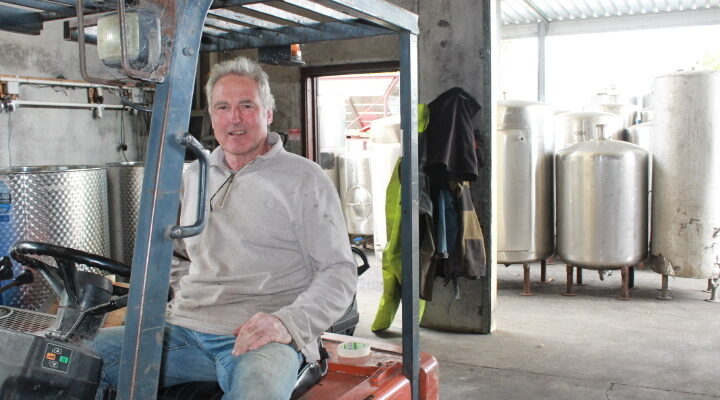
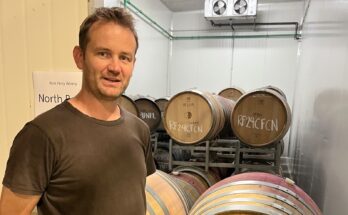
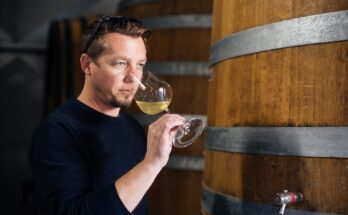
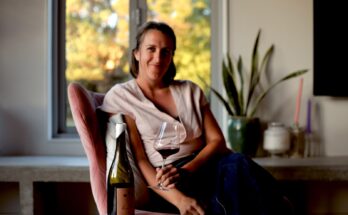
Youre so cool! I dont suppose Ive learn something like this before. So nice to seek out someone with some authentic ideas on this subject. realy thank you for beginning this up. this web site is something that is wanted on the web, someone with a bit originality. helpful job for bringing one thing new to the web!